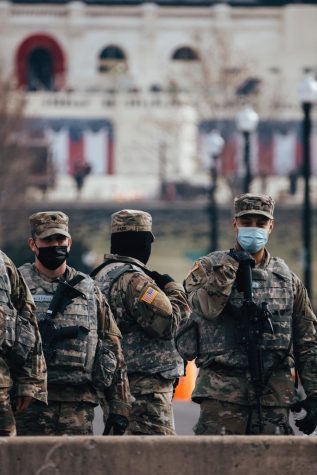Staff Ed- Law enforcement decryption a potential invasion of privacy
When a terrorist killed three people and injured eight others on a Pensacola, Fla. air base in December, Attorney General William Barr had a seemingly reasonable request for Apple: unlock the shooter’s iPhone. It’s a similar request to what federal law enforcement agencies have had for both Apple and Google in the past, notably after the San Bernardino attack in 2015.
Pushing for this access has been a bipartisan issue. Both the Obama and Trump administrations have railed against every technology company imaginable to get more information on terror suspects. President Trump himself even stated on Jan. 22 that Apple “has the keys to so many criminals,” according to CNBC. However, both administration’s request is built upon a lack of basic technological logic.
Unlocking an iPhone or Android device couldn’t be done by simply guessing a passcode. Nor could it be done by a company unlocking a database and obtaining a corresponding password. The government is asking companies to develop what they call “back door” technology.
Essentially, this would mean intentionally adding a flaw into encryption technology to allow federal investigators to have access to any hypothetical criminals’ call history, text messages or social media activity. Even those who trust the government the most should admit that this plan is fundamentally flawed.
The Edward Snowden leaks of 2013 revealed that federal agencies like the FBI had engaged in surveillance of Americans’ digital activity without a warrant. In this case, the government is attempting to get more of what they aren’t entitled to, only they need to publicly ask third-party entities like Apple.
If they were to obtain this “back door” technology, the government could theoretically access anyone’s phone activity, regardless of whether or not they had a warrant. There’s also no telling that the flaw could be abused by someone other than authorities; a “back door” to a terrorist’s phone is a “back door” to everyone’s phone.
The code for such technology couldn’t and wouldn’t discriminate. Law enforcement agencies are trying to sell a prescription that would do more damage than the disease it’s trying to eradicate. We shouldn’t fall for their marketing campaign.
Agencies like the FBI and CIA would like to tie the country in a moral straitjacket. After all, the origin of their request was a terrorist attack. This is the same tactic they used to justify the Abu Ghraib prison torture programs after 9/11 and the passing of the controversial Patriot Act in 2001. We shouldn’t be fooled again.
The Bill of Rights has protected the citizen’s right to privacy for years. It has also prevented law enforcement from unreasonable search and seizures. Americans have been placed in a position where they, unfortunately, must trust private enterprises to protect these rights.
We shouldn’t allow the government to overstep their boundaries in an Orwellian sense before our very eyes. Despite the fact that these agencies seemingly have good intentions, it would be nonsensical to mold the law to their benefit. They must operate within the basic rights of the Constitution to catch suspects before taking the entire American public down with them.



